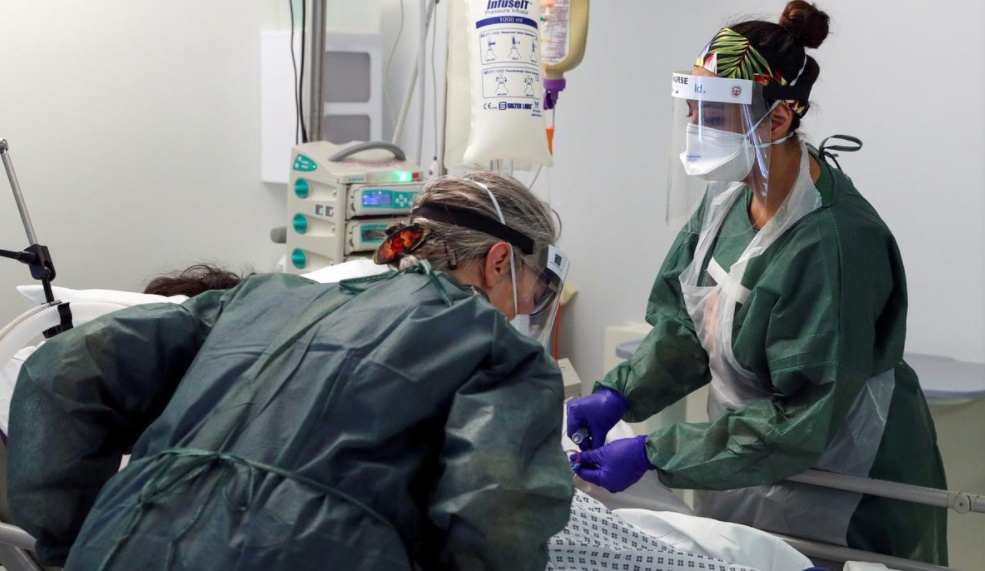
FILE PHOTO: Nurses care for a patient in an Intensive Care ward treating victims of the coronavirus disease (COVID-19) in Frimley Park Hospital in Surrey, Britain, May 22, 2020. (Photo: Agencies)
Doctors in the United Kingdom have begun assessing patients as part of a major study that aims to identify the long-term impacts of novel coronavirus infection.
In the new study, which is backed by the UK government, doctors will analyze up to 10,000 patients using techniques including advanced imaging, data collection and blood and lung sampling, creating a comprehensive picture of the impact COVID-19 has on long-term health.
The government has provided 8.4 million pounds ($11 million) in funding for the project, which is being led by the University of Leicester and the University Hospitals of Leicester National Health Service Trust.
"As we continue our fight against this global pandemic, we are learning more and more about the impact the disease can have not only on immediate health, but longer-term physical and mental health too," Health Secretary Matt Hancock said. "It will also help to ensure future treatment can be tailored as much as possible to the person."
Ottoline Leyser, chief executive of UK Research and Innovation, which partially funded the study, said that there must be a recognition that, for many people, clearing infection is "just the start of a long road to recovery".
At the beginning of the pandemic, COVID-19 was predominantly referred to as a respiratory illness that mainly impacted the lungs. Medical experts are now increasingly warning that the virus can damage a number of other organs and tissues, including the heart, brain, liver, kidneys, blood vessels and nerves. Some of this damage could be long lasting, suggesting that some patients will have complex and long-term medical and psychological rehabilitation needs.
"We have much to learn about the long-term health impacts of COVID-19 and its management in hospital, including the effects of debilitating lung and heart conditions, fatigue, trauma and the mental health and wellbeing of patients," Leyser said. "This study will support the development of better care and rehabilitation and, we hope, improve the lives of survivors."
COVID-19 has proven to present itself in a number of ways in different patients. Two large clinical studies in China showed that some people display symptoms in the gut, rather than the lungs, and these gastrointestinal issues have been linked to liver damage in some cases.
Also, scientists in China were among the first to report neurologic complications in COVID-19 back in April. Researchers found that around one-third of 214 patients hospitalized in Wuhan with novel coronavirus infection displayed neurological symptoms, which included impaired consciousness, muscle injury, and disruption of blood supply to the brain.
"We have rightly focused on mortality, and what the UK can do straight away to protect lives but we should also look at how COVID-19 impacts on the health of people after they have recovered from the immediate disease," said Chris Whitty, the UK chief medical officer.


